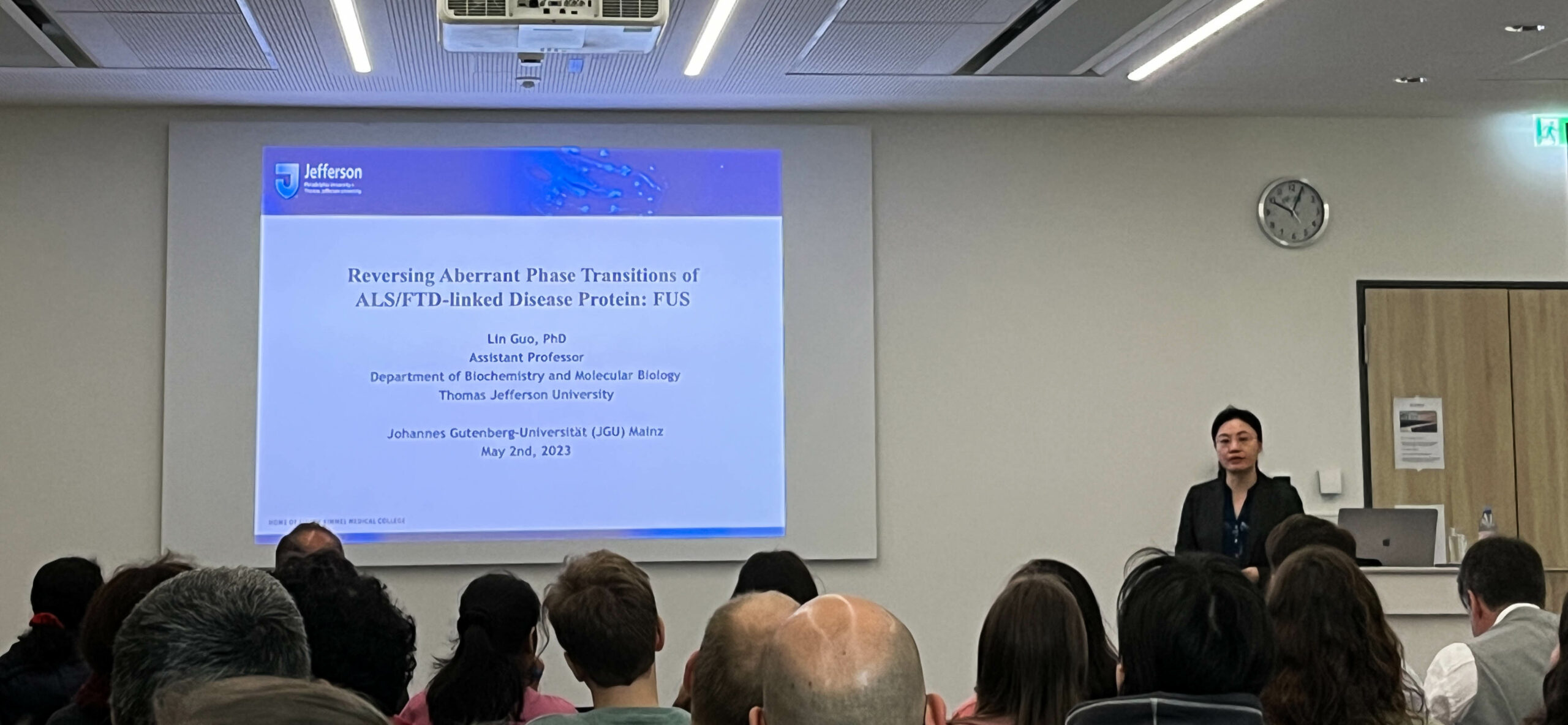Assistant Professor Lin Guo from Jefferson University, one of our SFB’s reviewers visited us on campus today. As part of our SFB 1551 Seminar Series she gave a talk about reversing aberrant phase transitions of ALS/FTD-linked disease protein. We were pleased to see that no seats were left available in the lecture hall which was attended by almost all network and associated members.
Lin Guo stayed the afternoon to have discussions with interested project leaders across our network.
Her talk’s abstract can be read below and also be found on our past events’ page:
Abstract: Liquid-liquid phase separation (LLPS) mediates the formation of diverse membraneless organelles, such as stress granules (SGs) in the cytoplasm. Despite clear biological utility, dysregulated liquid-liquid phase separation can be detrimental. For example, phase-separated stress granules enrich RNA-binding proteins (RBPs), such as TDP-43 and FUS, which have an intrinsic tendency to form fibrils that are closely tied to fatal neurodegenerative disorders, including amyotrophic lateral sclerosis (ALS) and frontotemporal dementia (FTD). Therefore, it is important to understand how cells regulate the liquid-liquid phase separation of biomolecular condensates, which includes maintaining beneficial phases and simultaneously preventing pathological phase separation and fibrillization. As RNA-binding proteins localize mainly in the nucleus, the phase separation of FUS and TDP-43 can be regulated by both nuclear import receptors and short RNAs. For example, we found that phase separation of FUS can be regulated by Karyopherinβ2 (Kapβ2), which recognizes the proline/tyrosine–nuclear localization signal (PY-NLS) at the C-terminus of FUS protein. On the other hand, phase separation of TDP-43 can be regulated by the Importina/Karyopherinb1 complex, which binds to the canonical NLS of TDP-43. In vivo, Kapβ2 prevents FUS accumulating in stress granules, restores nuclear FUS localization and function. By preventing and reversing aberrant FUS phase transition and cytoplasmic localization, Kapβ2 is able to rescue neurodegeneration caused by disease-linked FUS. Our results indicate that regulating FUS LLPS by nuclear import receptors could be potential therapeutic strategy for ALS/FTD.

